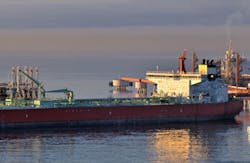Dow Microbial Control antifouling technology gains landmark EU approval
Dow Microbial Control, a business unit of The Dow Chemical Company, has announced European Union regulatory approval of its innovative antifouling active substance – DCOIT (4,5-Dichloro-2-octyl-2H-isothiazol-3-one).
The technology is used in paints and coatings to prevent unwanted organisms settling on the surface of structures that are immersed in water. DCOIT can now be used in coating formulations that fall under the Biocidal Products Regulation (BPR) "Product Type 21" – including antifouling products – following the approval from the European Commission.
Approval for the technology was hard-earned, due to the environmental challenges of this type of product – DCOIT being just the second active substance to be given EU market approval in this category.
Antifouling products are used for marine vessels, aquaculture equipment and other structures used in water. They help control the growth and settlement of fouling organisms, such as microbes and higher forms of plant or animal species.
These organisms not only waste money by reducing a ship's operating efficiency, they also harm the environment due to increased fuel consumption and emissions – not to mention the spreading of the marine invasive species.
In gaining regulatory approval, DCOIT has met some of the most stringent environmental standards in the world, commented Mark Henning, global business director for Dow Microbial Control. He said: "This landmark EU approval confirms an excellent environmental profile for DCOIT as an antifouling agent for commercial fleets, superyachts, nets and other marine structures.
